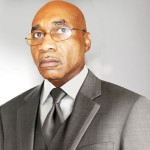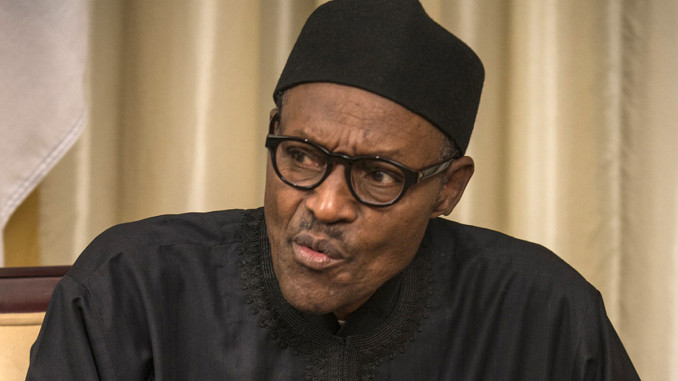
In the past five weeks, Boko Haram militants have slaughtered villagers and bombed churches and mosques in the northern Nigeria, challenging president Muhammadu Buhari’s vows to clean the region of any terrorist insurgency in the first few months of his administration. To make it worse, the group has boldly overrun Borno State, a region where President Buhari relocated the country’s armory, with an excuse to defeat them. So what went wrong?
Just last week, frustrated Nigerians took to media outlets to question President Buhari’s nonchalant attitude toward issues of security and economy. He had remained out of touch with realities of the governmental process and had not offered a single plan as to how to begin. Food prices are on the increase; Fuel pump price has increased from N87/liter to varying prices of between N110 to N130 per liter. Exchange is on a scary increase of $1 = N230 contrary to Buhari’s promise to eliminate differences in exchange rates.
Amidst all these difficulties and of course the regime’s inability to communicate a development outline, the president finally broke his 40-day silence on national issues. It was an announcement meant to positively inspire hope in a system currently lifeless. To his hopeless suffering masses, President Buhari handed down his announcement, that he would only receive half of the salary paid to his predecessor. Who cares? The annual salary of the Nigerian president is currently set at 14,058,820 naira ($70,000), including allowances, and the commonsense question is how a voluntary pay cut by this president could alleviate the current economic woes?
Yet it is worrisome that rather than tackle major issues, the social media warriors of the All Progressive Congress (APC) have continued to feed disappointed masses with some worthless cock-and-bull tales about President Buhari’s acclaimed modesty, cheap maintenance, and low-level lifestyle. Press releases are either how he turned down an official car, or how he flew the economy class.
But observers are very worried about this self-gratifying campaign. In a region overrun by Islamic extremists and terrorists, the major issue should be how a 50% pay-cut could crack terror. Buhari’s supporters claim that his pay-cut would likely put pressure on members of the parliament and state governors to do the same, but how this attitude addresses a skyrocketing unemployment rates is yet to be ascertained. Furthermore, with continual global slump in the price of crude oil which is Nigeria’s major source of revenue, the government must render a figurative analysis on how pay-cuts could build the economy.
Challenges in government are inevitable: addressing them should be a strategic duty, not a punitive labor. One positive aspect of failure is that success thrives on it. Every country has that moment – a period when challenges engulf growth and possibilities. This is when policy-making effectiveness becomes obligatory, and the Chief Executive takes the lead in coordinating two significant elements of his duties, the general masses and the surrounding situation or context. A leader who neither understands nor speaks this language should back off and become a follower.

When president Obama came into office in 2008, the economy of the United States was in shambles. He named his team, presented America with a blue print, and communicated projected timelines. He spoke to the masses regularly through radio/TV speeches, social media chats, emails, and other outlets, expressing the desolations of the tide and his keenness to inspire change and convey hope into the populace. In January 2009 alone, employers cut nearly 800,000 workers. Throughout 2009, the job slashing continued until the unemployment rate hit 10 percent that October. Within four years, the unemployment rate went down to 5.6 percent, and at some point, the private-sector employers added jobs for 58 straight months — the longest streak on record.
One of President Obama’s economic nightmare inherited from his predecessor was the housing catastrophe. The brutal foreclosure crisis knocked millions out of their homes, and by 2010, the “serious” delinquency rate for mortgages hit 4.2 percent, leaving millions of homeowners behind on their payments. Following Obama’s blueprint, the delinquency rate was down to 1.9 percent while the housing prices rebounded.
Back to Nigeria and the prevalent standoff between them administration and the masses on policymaking blackout, nobody is expecting a miracle from a regime that has barely lasted for two months, but with its customary lack of communication regarding projects’ plans and timelines, the Buhari’s regime may be headed for a process blackout. Without Ministers; not a single known adviser, and without any working team besides some obsequious cohorts who worship him, President Buhari is already abusing his official duties, making contradictory policy comments, dictating unmanageable strategy undertakings, and flip-flopping with dire issues of national significance. For instance, without senate approval President Buhari had unilaterally granted over N780 billion to States without a signed document from an operational minister of finance. While the APC bragged about the president turning down official cars and presidential jets, Buhari has unilaterally approved, and have started a construction of a private helipad in Daura Katsina State, his home town.
Electioneering campaign is over, and by now, the APC must abstain from feeding hungry masses with fake rhetoric and deceits about President Buhari’s sanctimonious lifestyle. It is not late for this President to communicate his agenda and acquaint the populace with his plans to proceed. Self-gratifying tales about taking pay cuts, turning down official cars, declining state dinner engagements, and so on are absolutely irrelevant to the current challenges. If his 50% pay cut has any positive impact on this country’s alarming unemployment rates; skyrocketing food and petrol pump prices; and his inability to form a government – he should provide an outline to communicate his claims. The poor masses are saturated with pointless campaign on Buhari’s holier-than-thou personality. This is the time to show his executive skills and so far, he has flunked that test.

Leave a Reply